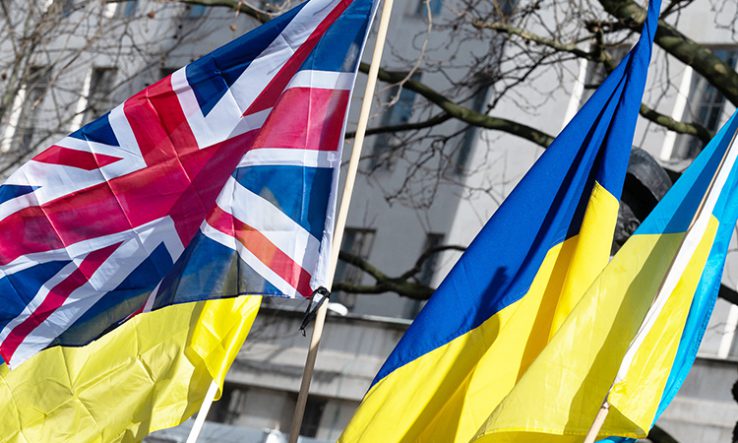
Image: Catholic Church England and Wales [CC BY-NC-ND 2.0] via Flickr
Strong UK response raises broader questions about higher education’s humanitarian role, says Jamie Arrowsmith
One year ago, as the world watched in horror as Russia’s invasion of Ukraine unfolded, the UK higher education community was vociferous in its response and unanimous in its support for the people of Ukraine.
Statements condemning the invasion were swift and unequivocal, followed by sanctions and advice to end research and education partnerships with Russia. These were necessary but small steps in signalling our condemnation of the war.
However, it was clear that action was also needed—what could universities do to help? Understanding how to respond, and how to target resources to deliver effective support to those affected was initially a challenge.
As a first response, Universities UK International drew together a task group of universities, government departments, funders, sector agencies and third-sector organisations to think through the immediate issues. This allowed the sector to prioritise and assign actions.
This group’s work informed the UK government response, helping to identify visa and immigration issues, and the need for targeted hardship support. The rapid deployment of resources for students and policy changes to support Ukrainian nationals demonstrated that, when working together with a common objective, both the government and the sector can move very quickly indeed.
Twinning programme
This work was vital, but it was reactive. It wasn’t a considered and strategic effort to work out what support the Ukrainian university community wanted from the UK. Thankfully, we were approached by an organisation with strong ties to the region, Cormack Consultancy Group (CCG).
Its founder, Charles Cormack, helped convene a meeting of British and Ukrainian university leaders to discuss how the UK could best support them. The answer from Ukraine was simple: help us stay open.
From this meeting, the UK-Ukraine twinning initiative was born. The idea is simple: universities in the two countries are brought together, supported by CCG, to develop a strategic partnership, consisting of a five-year collaboration with a bespoke agreement.
At an institutional level, the aim is to help ensure universities can continue to operate. At a more strategic level, the ambitions are to maintain the integrity of Ukrainian higher education, help prevent brain drain, and position Ukraine’s universities to emerge from the crisis with the resources, skills and international experience to make a full contribution to the reconstruction.
To date, more than 100 partnerships have been established. Hundreds of Ukrainian students have visited the UK twin on mobility programmes. New research collaborations have been fostered. Practical support, from providing computers and furniture to access to learning resources and academic infrastructure, has helped mitigate some of the damage done to campuses and infrastructure.
In September 2022, the #TwinforHope campaign was launched to share stories from these collaborations. The programme has received funding from the UK foreign office and UK Research and Innovation has provided £5 million for research and innovation activities within the partnerships.
Beyond Ukraine
The programme is testament to the huge amount of work and support from across the sector and the team at CCG. Beyond twinning, the UK government and British Academy launched the Researchers at Risk scheme, Refugee Education UK has developed a platform to make it easier for displaced students from anywhere find information on scholarships in the UK. And longstanding organisations such as the Council for At-Risk Academics continue to provide an invaluable service.
Over the past year, it’s been humbling to support the work of so many committed and inspiring people through the Twinning scheme. And yet it has also highlighted challenges in how the higher education community responds to humanitarian crises.
First, despite the phenomenal support provided by the UK government, universities have struggled to offer help to Ukraine’s international students. While UK visa, immigration and funding policy mean these students cannot be easily supported, this feels unsatisfactory as a response.
Second, the war has raised questions over how universities can respond to other crises. The Twinning scheme is built on very particular circumstances, including clear political and public support, policy change and, of course, funding.
These things matter, but the question of whether universities could do more, as a community, to mobilise that support in response to other crises is absolutely the right one.
UK universities have been clear in their support for Ukraine, and for their peers, colleagues and the students affected by the war. Our Ukrainian partners are equally clear that these collaborations are for the long term. And we, as a university community, need to learn and understand how we can better support universities, students and researchers affected by other humanitarian crises.
Jamie Arrowsmith is the director of Universities UK International
